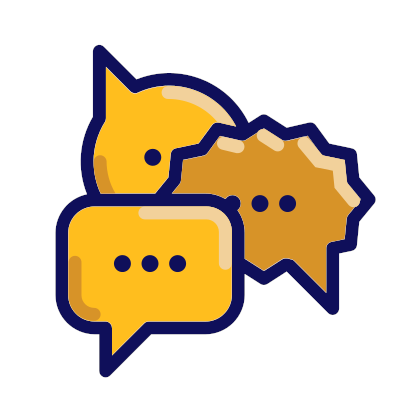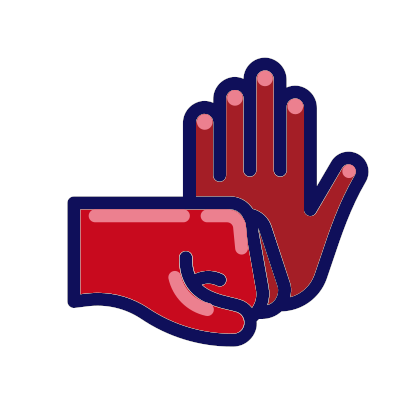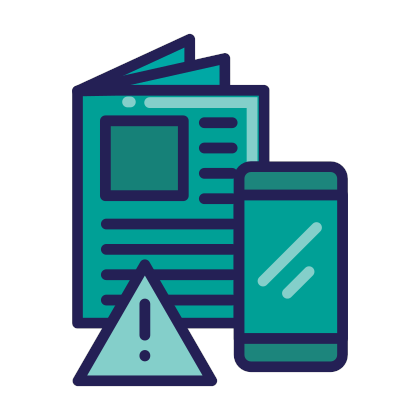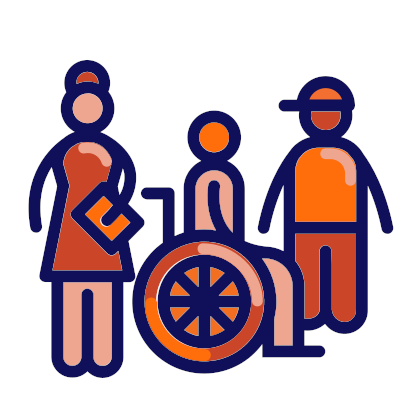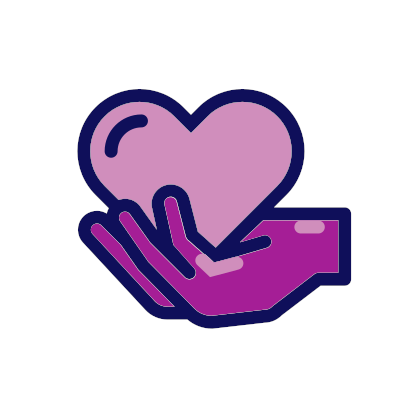Making children’s and students’ voices heard
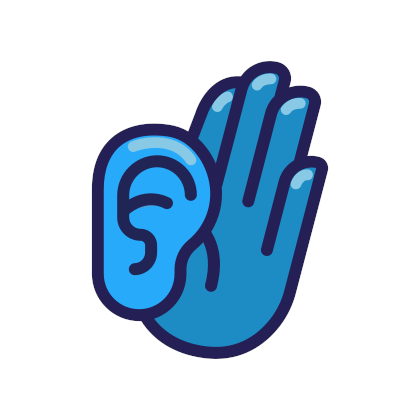
Schools have a key role in upholding this principle. At the same time, students need to be aware of both their rights and responsibilities.
Learning about human rights and democracy is a fundamental first step for becoming an informed and responsible citizen.
Students also need to participate in activities such as debating and community work. Skills, knowledge and critical understanding must be coupled with the attitudes and values that form part of a democratic culture. All this should be promoted through a whole-school approach.
Facts & figures
While students make up approximately 92% of any given school’s population, the decisions in school are routinely made by the remaining 8% who are adults.[1]
Students learn better when they are engaged partners throughout the educational process.[2]
What is student voice?
Student voice is the right of students to have a say in matters that affect them in their schools, and to have their views and opinions taken seriously. It encompasses all aspects of school life and decision-making where young learners are able to make a meaningful contribution, adapted to their age and stage of development. It stretches from informal situations in which students express an opinion to their peers or staff members to participation in democratic structures or mechanisms, such as student parliaments and consultations.
Student voice can vary from simple self-expression to taking on a leadership role in an aspect of school life. It can be characterised according to a 6-fold typology of increasing complexity and responsibility:
- Expression – voice an opinion
- Consultation – asked for an opinion
- Participation – attend and preferably play an active role in a meeting
- Partnership – have a formal role in decision-making
- Activism – identify a problem, propose a solution, and advocate its adoption
- Leadership – plan and make decisions
Given that the relevant activities are age-appropriate, student voice can be expressed anywhere in the school community, in and out of lessons, e.g., through inviting students to comment on teaching approaches and techniques, suggest topics for class discussion, participate in school policy committees and/or consultations, or just join in a casual conversation on school matters with a teacher or other staff member in their free time.
Why is student voice important at school?
Student voice is rooted in the concept of children’s rights and human rights. In particular, Article 12 of the United Nations Convention on the Rights of the Child (UNCRC) establishes the right of every child to have a say in matters which affect them, whether in or out of school, as well as to be involved in decisions that affect them. More generally, the UNCRC includes other articles that seek to increase students’ voice, including the right to seek and receive information, to express their own views and to associate with others.
UN Convention on the Rights of the Child: Article 12
“Parties shall assure to the child who is capable of forming his or her own views the right to express those views freely in all matters affecting the child, the views of the child being given due weight in accordance with the age and maturity of the child.”[3]
Student voice can have many benefits both for schools and the wider society – for example:
- Participation in school decision-making fosters a sense of citizenship in young learners, helping them to develop important competences, e.g. co-operation and communication skills, self-efficacy, responsibility, civic-mindedness and respect for the value of democracy – all of which lie at the heart of the Council of Europe Reference Framework of Competences for Democratic Culture (RFCDC).
- Contributing to their school community gives young learners a sense of belonging, develops self-esteem and can lead to more respectful relationships. This has a positive influence on school discipline and helps to reduce the incidence of problems such as drop-out, bullying, substance abuse and radicalisation.
- Engaging students in active learning activities in class has a positive effect not only on the classroom atmosphere, but also on the educational achievements of students and their peers.
What are the challenges?
There are a number of major areas of challenge facing the development of student voice in schools.
The first relates to the attitudes of other school stakeholders. Parents, teachers school leaders and others who have traditional views of schooling sometimes feel that children and young people should be ‘seen and not heard’ in school. They think respect for others and for authority are best developed in a culture of deference. To counteract attitudes of this kind school leaders need to introduce elements of student voice gradually, explaining the process clearly to school stakeholders and sharing the successes with them when they take place.
Some stakeholders may see empowering young learners through student voice as undermining their own power or position of authority in the school. Teachers may sometimes feel that students have more rights than they have. This merely underlines the importance of developing a whole-school culture in which all stakeholders feel safe to express their opinions freely and openly, and to have their opinions taken seriously. Student voice goes hand in hand, therefore, with the creation of a general culture of democracy and human rights in school.
The second major area of challenge is ensuring that student participation is genuine participation and not tokenism or ‘window-dressing’. This means giving students opportunities to make a real difference to their lives and the lives of other school stakeholders, and helping staff to be more open to sharing their decision-making with young learners.
The Ladder of Children’s Participation
Roger Hart, in the book Children's Participation: The Theory And Practice Of Involving Young Citizens In Community Development And Environmental Care, developed the concept of a ‘ladder of participation’ which can be applied to student voice. He suggested eight different levels or degrees of student voice, from the simplest - which is little more than the manipulation of students for the school’s benefit - to activities where decision-making is genuinely shared between adults and young learners.
A third area of challenge is the difficulty of making opportunities for student voice equally open to all students. The problem arises to some extent on account of the perception that student voice applies only to formal school structures, like pupil parliaments. For stakeholders with more traditional attitudes towards teaching and learning it can be difficult to see student voice as integral to, rather than separate from the learning process in classrooms. Another aspect of this problem is that it is the more confident and out-going students who are prepared to voice their opinions openly or stand in class or school council elections. How to integrate student voice into learning and to involve a wider range of students in the process is a whole-school responsibility and needs to be taken seriously as an area of whole-school planning and as an important topic for teacher professional development.
How can schools get active?
There are a number of ways in which schools can develop more opportunities for student voice. These include:
- Encouraging teaching staff to consider how they can involve students in the learning process in the classroom, e.g., by creating more opportunities for students to express their own opinions, debate issues, make suggestions or draw up classroom rules;
- Creating mechanisms for student consultation on issues affecting school life, e.g., through questionnaires, suggestion boxes, surveys or focus groups;
- Establishing formal bodies or procedures, e.g., pupil parliaments, student committees and commissions, or ‘circle time’;
- Inviting students to sit on school policy-development committees, e.g., on gender equality, pupil safety or health and well-being;
- Teaching young learners the skills of public speaking and debate, e.g., discussion skills, active listening or argumentation;
- Providing opportunities for peer-led activities, e.g., peer education, peer assessment or peer counselling.
[1] https://soundout.org/why-student-voice-a-research-summary/
[2] https://soundout.org/why-student-voice-a-research-summary/ ; Beaudoin, N. (2005). Elevating student voice: How to enhance participation, citizenship, and leadership. Larchmont, NY: Eye on Education
[3] UN General Assembly, Convention on the Rights of the Child, 20 November 1989, United Nations
 Resources on Making children’s and students’ voices heard
Resources on Making children’s and students’ voices heard
Multimedia
Official texts
Policy documents
Studies
Higher education for democratic innovation (Council of Europe Higher Education Series No. 21) (2016)
Tools
 Related schools projects
Related schools projects
Address: Sachkhere Municipality Village Sairkhe
Country: Georgia
Project: “We Choose Democracy”
 Working language during the project:
Working language during the project:
- Georgian,
- English
 Themes of the Council of Europe project “Free to Speak, Safe to Learn - Democratic Schools for All” covered:
Themes of the Council of Europe project “Free to Speak, Safe to Learn - Democratic Schools for All” covered:
- Making children’s and students’ voices heard
- Preventing violence and bullying
- Improving well-being at school
 Competences from the Reference Framework of Competences for Democratic Culture (CDC) addressed and where / how they were integrated:
Competences from the Reference Framework of Competences for Democratic Culture (CDC) addressed and where / how they were integrated:
- Civic-mindedness
Implemented Activities:
1) Lecture-seminar - "What is an election"? What are the basic principles it should be based on, imitation of the election process. This activity is aimed at forming an active civic position among children and young people who do not yet have the right to vote.
2) Summer Camp 2019 " We Choose Democracy". The aim of the summer camps was to raise students' awareness of the following issues: cultural heritage, the importance of civic activism, its forms, types of bullying and healthy living, ways of resolving conflicts, discussions, question-and-answer sessions, motivation, involvement.
3) November 20 is the International Day for the Prevention of Violence against Children! The event was organized with the active involvement of students with special educational needs.
4) Meeting the Inspectors.
Organized by the School Civic Education Club, a meeting was held at the school with the inspectors of the Ministry of Internal Affairs, the topic of the meeting was "Protection of Children's Rights and Prevention of Violence and Crime"
5) "Visiting the Patrol Police"
Members of the Civic Club visited the Patrol Police Department and became acquainted with the Principles of their work.
6) A Visit to Sachkhere District Police Department. Topic: "No to Violence"
Officers from the police department introduced the students to types of violence.
7) Visiting the TV company "Rioni"
The leader of the Civic Club was invited to talk about violence against women on TV in Rioni, and the students filmed a video on the subject.
8) Meeting with the representative of the Ministry of Defense, topic "No to Violence"
We invited representatives of the Ministry of Defense to talk about violence.
9) Flipped classroom
Flipped classroom teaching method helps the teacher to develop independent thinking, search and other much needed skills. In this modified version of the method is the "Flipped lesson" that helps the teacher see himself from the student's position.
10) International Day Against Bullying
May 4 is the International Day against Bullying. Our school joined the initiative, the students solemnly opened the week, during which they organized a marathon, created posters, organized presentations and handed heart-shaped badges to each other as a sign of love and support ️.
11) Prosper Merimee "Matteo Falcone" - Book Review
Prosper Merimee's "Matteo Falcone" was discussed by members of the School Civic Education Club. Students drew a parallel with Akaki Tsereteli's "Gamzrdeli" and Alexander Kazbegi's "Khevisberi Gocha" All the main characters are committed to the community's way of life and its morals. Nevertheless, each of them violates the law of the community in their own way.
12) Meeting with Sachkhere District Prosecutor, Topic: No to Violence "
Members of the Civic Education Club invited the city prosecutor as part of the project, the topic of the seminar was "No to Violence"
13) June 1 is Child Protection Day! On this day, the management of the school was handed over to the students, they took over teaching and gave lessons to the juniors.
14) Movie “A dream Tree” Showing / Discussion - Analytical and critical thinking skills
Implemented Activities:
1) Small Grants Competition:
In addition to the technical equipment, the purpose of the "Why Democracy" competition was to develop students' research and search, project work, analytical and critical thinking skills.
2) Online discussion on the topic: ‘Why Democracy ?! ’
The discussion was held at Microsoft Teams, by the School Civic Education Club, with the aim of raising awareness of democratic competencies, studying and comparing examples from different democratic countries, substantiating one's own opinion, and promoting critical thinking.
3) "My favourite book"
The Civic Education Club organised a book presentation at the school, the club members introduced their favourite books to the listeners and explained why they liked this or that book and what impact it had on them.
4) "One book to school"
The School Civic Education Club launched the One Book School initiative. Students visited families in the Sairkhe community and collected books for the school library.
5) Meeting with the school librarian
The members of the Civic Education Club were trained by the school librarian on how to care for the books (how books are collected, stored and cared for in the library) in order to promote the book.
6) Exhibition "Sayings of famous people about democracy"
Within the framework of the project, the Civic Education Club organized an exhibition / presentation on democratic competences, as well as the speeches of famous people on democracy. At the end of the activity, an online exhibition was created. - Knowledge and critical understanding of the world: politics, law, human rights, culture, cultures, religions, history, media, economies, environment, sustainability
Implemented Activities:
1) The European Day of Languages
The European Day of Languages was celebrated with the aim of making students understand that linguistic diversity is an instrument for achieving a high level of mutual understanding between cultures and an essential element of the rich cultural heritage of our continent.
2) Europe Day Celebration
This aims to help students become global-minded, international citizens, learn about the traditions of different countries and share their diverse cultures.
3) International Book and Copyright Day
April 23 is the International Book and Copyright Day, this day was also celebrated by our school and on 23 April 2019, the elementary school teacher conducted a very interesting lesson in the 4th grade.
 Target group age range:
Target group age range:
- 5 - 11
- 11- 15
- 15 -19
 Level of education:
Level of education:
- Primary education
- Lower secondary education
- Upper secondary education
Short description of the project:
The project aimed to present democratic values that we find in Georgian classical or folk literature, historiographical works, legal monuments, ethnographic traditions, letters from public figures and other materials. Each approach to the issue was different: conducting research, finding and disseminating materials through various channels, including popular social networks, blogs.
The project is the result of two years of work. Our goal was to see how compatible democratic values are with Georgian culture. To answer this question, we tried to find traces of democratic values in different layers of Georgian culture. Within the framework of the project, various activities were carried out, which included the following topics: literature and prose, law, customs, cinema, theatrical art, polemics, which were held in the Georgian press in the 19th century in connection with democratic values, humanism and liberalism.
 Aims/objectives
Aims/objectives
Informing students about the basic principles of democracy, values, human rights and freedoms, democratic inclusion;
Students:
- A) see the differences and similarities between different cultures and develop a sense of respect for different cultures;
- B) Improve cognitive, social, information retrieval, information technology and effective communication and collaboration skills.
 Expected results/outcomes
Expected results/outcomes
Students explored information about the basic principles of democracy, values, human rights and freedoms, democratic inclusion.
Developed respect for other cultures, improved communication skills.
Students can define their place and importance in society, collaborate to solve key problems of public safety, can explore the foundations and conditions of peaceful coexistence in society.
Students become acquainted with the different forms of violence, found material on various facts regarding violence and ways to solve it, discussed preventive measures.
 Changes
Changes
Students were able to adapt the information, suggestions and tips obtained and use them adequately and independently.
Students were ready to make the maximum contribution to the group work and provide it with as many useful ideas as possible. They could always listen to, consider and develop suggestions by other members of the group.
Students adequately conveyed the facts, the context and their emotional state. They always followed the rules of conversation / dialogue / discussion and can gave very good input to joint activities for managing work.
Students systematically demonstrated the ability to compromise and could contribute their personal interests if need be. They could identify problems, respond in a timely manner, and deliver constructive criticism. They will be able to admit mistakes and draw conclusions.
 Challenges you faced
Challenges you faced
During the project, of course, there were challenges: meeting the deadlines for the tasks to be presented, the time limit during the implementation of the activities, creating motivation in terms of involvement and interest in the topic.
 Time-frame of the project:
Time-frame of the project:
2018-2020 school years.
 Council of Europe materials on citizenship and human rights education used while preparing or implementing your practice:
Council of Europe materials on citizenship and human rights education used while preparing or implementing your practice:
- Reference Framework of Competences for Democratic Culture
- Living Democracy - manuals for teachers
- Addressing violence in schools through EDC/HRE
- Human Rights and Democracy Start with Us – Charter for All
- Freedom(s) - Learning activities for secondary schools on the case law of the European
- How all Teachers Can Support EDC/HRE: A Framework for the Development of
- Multimedia Material (ex. video “Beat Bullying”, series of cartoons “Democracy and



